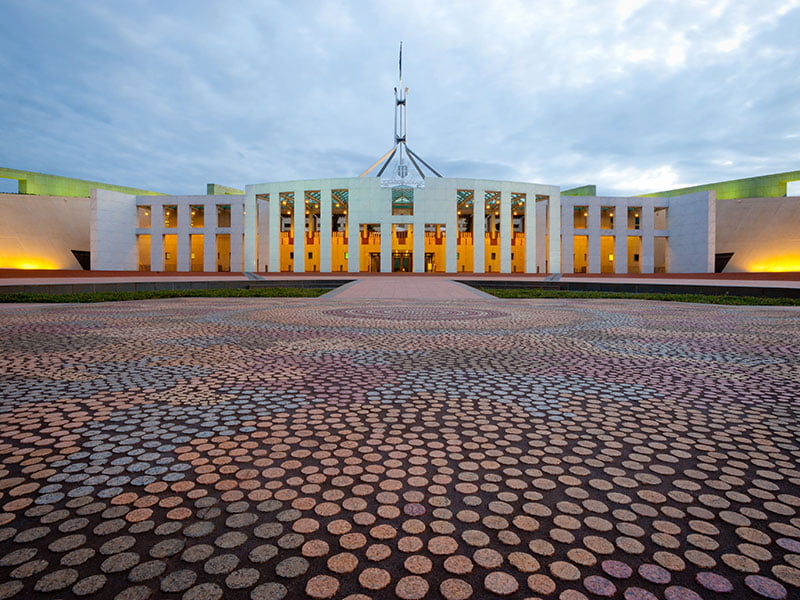A coalition of privacy organisations, think tanks and industry groups are calling for the creation of a dedicated parliamentary committee to give “political focus” to digital rights issues in policy deliberations.
As digital platforms grow in influence and become more critical to daily life, the coalition said a Joint Standing Committee on Digital Affairs is needed to overcome the fragmented tech policy landscape and be a “driving force for reform”.
“Our Parliament continues to treat digital and technology policy as an afterthought, relegated to a backseat in other portfolio committees,” the six organisations said in a letter to the inquiry into the influence of international digital platforms.
The coalition includes Digital Rights Watch, Electronic Frontiers Australia, the Australian National University’s Tech Policy Design Centre, the Per Capita’s Centre for New Industry, Professionals Australia and the Australia Institute’s Centre for Responsibly Technology.

The groups view the “piecemeal” approach to digital and technology policy in Australia to date as a “symptom of the lack of ambition, coordination and capability within our Parliament”, although recognise similar issues persist at a department and agency level.
Europe, Germany, France and the Netherlands have had dedicated parliamentary committee on digital and technology policy since 2014. Germany’s Committee on Digital Affairs, for instance, canvasses issue of digitalisation and connectivity, with a view to be a “driving force”.
Digital Rights Watch chair Lizzie O’Shea told InnovationAus.com that a similar committee was necessary in Australia as “misuse arises because of the narrow focus of the relevant committee considering the legislation”, such as the Parliamentary Joint Committee on Intelligence and Security.
She highlighted the Data Retention Regime introduced by the then-Abbott government with Labor’s backing in March 2015 which requires telcos to hold their customer’s metadata for two years to assist with serious criminal and national security investigations.
The Albanese government earlier this year agreed to close a loophole in the legislation that allows non-law enforcement agencies, including local councils, to access telecommunications data, as well as introduce new local hosting requirements for companies like Telstra and Optus.
“A lot of those concerns have now quite clearly come to pass. There’s a huge amount of overreach, there’s loopholes in the legislation that shouldn’t have been there, and now we’re getting to the point of reform,” Ms O’Shea said.
“But it shouldn’t take that long, and it should be a process where consultation flushes out these problems before they arrive… It shouldn’t have to take widespread harm and also multiple different department and committees reporting on these things to solicit change.”
Other recent controversial reforms include the encryption-busing laws passed in late 2018. Last year, the Commonwealth Ombudsman found that law enforcement agencies had begun using the powers before they had established sound governance frameworks, leading to potential “non-compliance”.
With a “more sophisticated understanding of digital and technology policy”, the proposed Joint Standing Committee on Digital Affairs would allow for a “better allocation of time, resources and expertise” and help reduce the load on other committees.
“Existing portfolio committees are overworked and their broad remit mean that they neither have the capacity nor time to proactively interrogate emerging tech issues,” the six organisations said.
The proposed committee could also potentially review contentious legislation alongside other parliamentary committees, like PJCIS, as this was often “where the rubber hits the road”, according to Ms O’Shea.
“From tech ownership to online privacy, from cyber security to digital literacy, a single home for all digital affairs would position Australia as a leader, not a follower, in the global race towards a better digital future,” the letter states.
“Every innovation has economic, social, environmental and technical consequences. We cannot afford too narrow a focus when we reflect on tech’s impacts. We must develop our capacity to invent, analyse and critique digital and technology policy properly.
“Whether it’s how our workplaces respond to disruption from artificial intelligence, what the legal status of property in the ‘metaverse’ is, or how we protect our cultural heritage online as platforms are abandoned, we can no longer afford to merely react to technological change.”
Digital Rights Watch has separately recommended creating the Australian Digital Corporation, an entity modelled on the Australian Broadcasting Corporation that would deliver digital technology and services, starting with a public cloud.
The group has also urged the government to appoint a Minister for Digital Capabilities to continue the digital and technology policy reform efforts that began with an Assistant Minister for Digital Transformation under the Turnbull government in 2016.
Earlier this year, Liberal backbencher Aaron Violi, who was one of the first federal MPs to use ChatGPT to write a speech to Parliament, flagged the value of a parliamentary technological assessment office, another mechanism to improve understanding of technologies.
Do you know more? Contact James Riley via Email.

